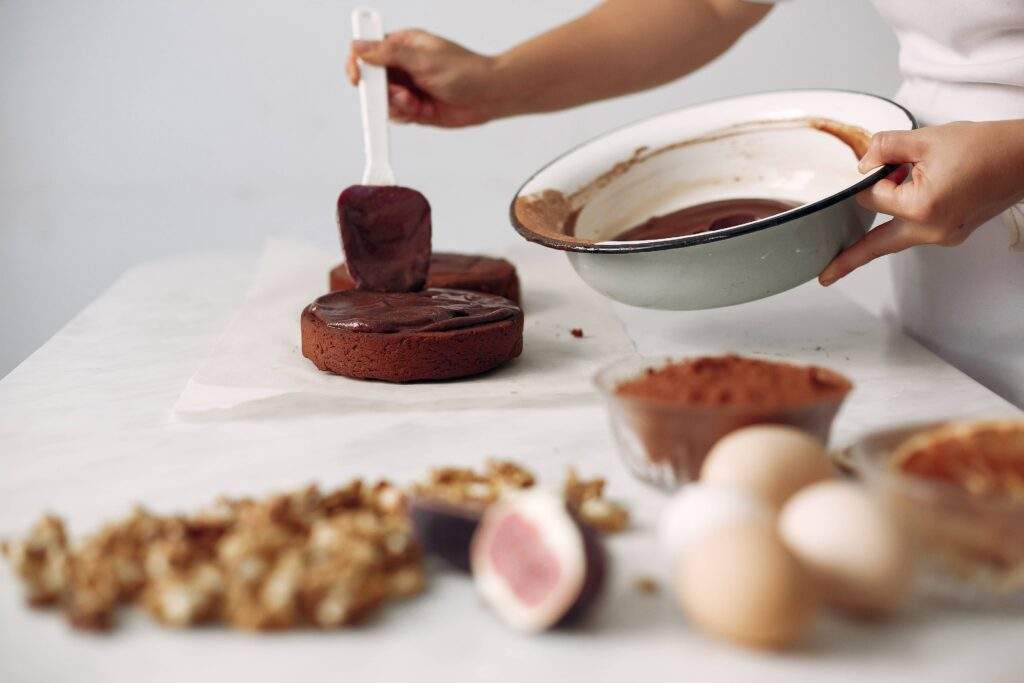Baking can be a fun hobby and also a therapeutic process. It engages your senses of touch, taste, and smell while also giving a sense of fulfillment of being involved in the entire process from start to finish. But for beginners, baking can also be quite intimidating.
With a host of different techniques, ingredients, and equipment to consider, many people hesitate to take up baking despite their genuine interest. Because easy to resort to best cake shops in Mumbai for your favourite confections whenever you feel like it. However, with a few simple baking tips, even the most inexperienced or amateur bakers will be able to quickly whip up delicious treats.
Baking is a Calculated Process
Dedicating a certain amount of time to the baking process is essential. Never bake when you are pressed for time, especially if you are a beginner. Before commencing the baking process, ensure that you are completely equipped. Practice patience, read the recipe, gather the required ingredients and recheck the ingredient list, prep the ingredients, grease the pans, and preheat the oven.
Being unprepared and short on time can lead to improperly measuring or missing out on adding certain ingredients, or even skipping crucial steps. This can result in sub-par baked goods. So keep in mind that the better prepared you are, the better your results will be.
Weighing Ingredients is Key
In addition to following proven techniques and tested recipes, making certain that your ingredients are precisely measured is critical in baking. Keep aside a bowl and a scale for easy measurement. Most recipes mention spoons and cups when it comes to measuring the ingredients.
So keep a measuring cup and spoon handy. They are designed to exactly measure dry ingredients. Scoop the ingredient like flour into the measuring cup till it overflows a bit. Then level off the top with the back of a knife. For liquid ingredients, use clear see-through measuring cups.
It’s All About the Temperature
Getting the temperature right is essential for baking. When a recipe dictates the use of room-temperature ingredients like eggs or butter, be sure to comply with the given instructions. Room-temperature ingredients blend better into the batter, creating a uniform texture.
Please remember, hot ingredients are rarely recommended. Adding a hot ingredient would make the milk curdle, and eggs get scrambled. If a recipe mentions adding a warm ingredient, keep in mind that warm is not the same as hot. You should be able to hold the warm item for around five seconds without burning yourself before adding it to the recipe.
Pay Attention to your Oven
In addition to the aforementioned tips, invest in an oven thermometer for easy baking. Each oven, whether gas or electric, works differently. Some ovens may heat up quicker than others while some may have unavoidable hot spots in certain areas within. Take a thermometer and place it in the center of the oven to measure the exact temperature.
Once this is done, move the thermometer around and gauge the temperature. This will help you deduce the cool or hot spots, if any, in your oven. Use this information to regulate the temperature, adjust baking times if required and revolutionise your baking game!
Moreover, be sure to keep your oven door closed and use the oven window or its light to keep a track of your baking. When you open the oven door before the right time, the heat trapped inside escapes, changing its environment temperature and ruining your timed baking process. Simply poke a toothpick into your baked item or remove it completely once done.
The Right Bakeware Matters
Invest in high-quality nonstick bakeware as opposed to its cheaper alternatives. Cheap bakeware can be layered in toxic coatings, uneven in thickness, and can even lead to your baked goods getting stuck to the pan.
Work with a thick metal pan instead of glass or ceramic dishes. The latter options take longer to heat up and maintain that heat long after the temperature has been turned down. This results in the recipe getting compromised and the final outcome may defer.
Another great tip is to line your bakeware with parchment paper. First, grease your pan with butter or a non-stick baking spray, followed by dusting some flour or cocoa powder for chocolate-based recipes over the grease. Place the parchment paper at the bottom of the pan. This approach will make certain your baked goods do not stick to your pan.
Baking is like science where trial and error are inevitable. So just have fun with the process and enjoy the final results.


